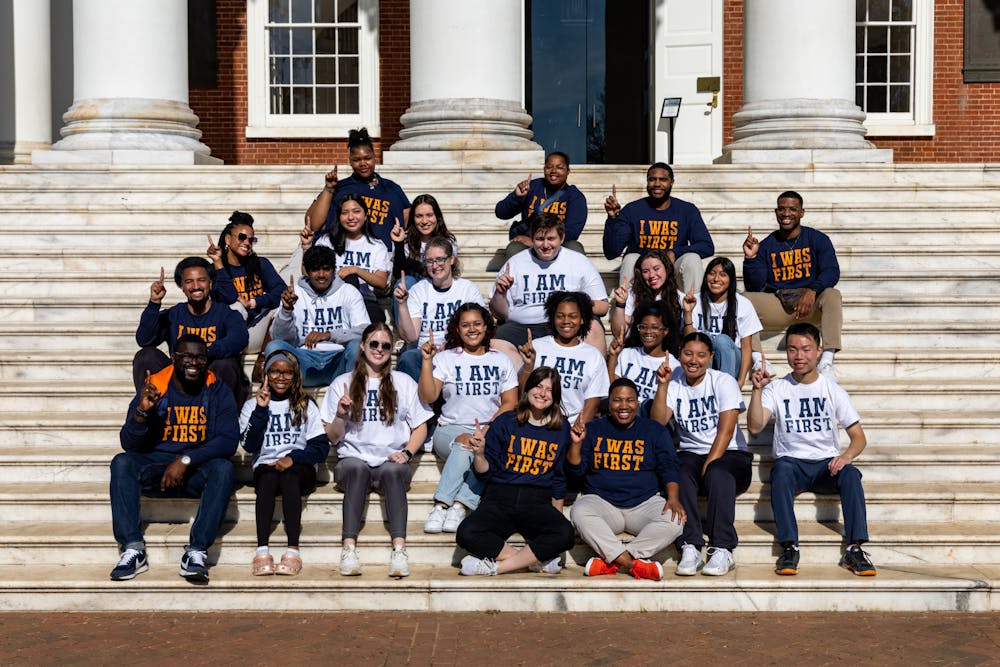The University is anything but an economically diverse institution. According to the New York Times College Access Index, the University ranks 248th for economic diversity out of the 286 most selective colleges in the country, as measured by Pell Grant recipients. Since the last time the New York Times released this index in 2017, the University has fallen even further behind regarding economic diversity — from the 50th percentile to the 25th percentile. Even more appalling, the University is dead last among state flagships, despite having the largest endowment per student. These are statistics with which the University, as an institution, and we, as students, should be very uncomfortable.
The University has acknowledged that this is a huge problem and has taken steps to remedy it in its recruitment process. In 2019 when University President Jim Ryan released his 2030 Plan, his first goal was to “strengthen the University’s foundation” by recruiting exceptionally talented and diverse students “regardless of their economic circumstances.” Similarly, since the early 2000s, the University has instituted many recruitment initiatives to target first generation and low income students and improve the accessibility of the application process. These efforts include AccessUVA and the Virginia College Advising Corps. And most notably, for the past few years, University has been ranked the No.1 public college or university for financial aid.
These efforts are laudable, but the data shows they are ultimately insufficient. The Editorial Board can’t help but notice that the University’s actions focus, almost entirely, on the process prior to matriculation. Since recruitment initiatives have done little to improve economic diversity on Grounds, we must begin to consider that the current culture of affluence on Grounds may be equally as prohibitive to FGLI students as inaccessible application processes.
Because of the lack of economic diversity on Grounds, FGLI students often feel socially isolated and segregated from their affluent peers. Academically, the hyper-competitive environment and lack of accessible institutional support has produced systemic imposter syndrome and chronic stress for many FGLI students. There are few institutional supports for students who experience these issues — the academic advising system is entirely inadequate and other mentorship opportunities, such as Hoos First, are not sufficiently advertised.
The social scene at the University can also be hugely prohibitive to FGLI students who cannot afford to participate in the dominant party culture which prescribes exorbitantly expensive behaviors. The University is known for a culture which for many includes drinking several days a week — this can easily add up to hundreds of dollars spent in a seven-day span. Additionally, costs associated with Greek life can easily cost thousands of dollars. The expenses and time commitment associated with these activities are unmanageable for many FGLI students — especially since many must work at least one job to afford college and support families back home. The need to work can also prevent FGLI students from becoming leaders in the realm of student self-governance because of the sheer amount of time student leaders are expected to pour into their positions.
In short, the lived ethos of affluence, in addition to the price tag and prestige of this University, is prohibitive to both current and prospective FGLI students. Student Council has begun to compile resources for FGLI students, including “Being Not-Rich at UVA” and Mutual Aid. The burden to provide these resources should not, however, be solely on enterprising students. To concretely address and remedy economic stratification in a college setting, the University must make economic diversity an institutional priority beyond the recruitment process.
There are a range of initiatives that the University can and should undertake to achieve a more inclusive and diverse ethos. Firstly, there must be a more robust academic advising system for FGLI students, one which includes both faculty and peer mentorship opportunities, in order to better guide them through all facets of University life. And while our financial aid ranking is superior, the University might consider a more radical financial aid approach — providing students not just with financial aid for tuition bills but also for the more informal expenses which drive many FGLI students to find a job. These solutions are just the tip of the iceberg and should be supplemented by additional resources and continued, collective reflection on how we can make this institution more welcoming of FGLI students.
It would be easy to lay all the blame for our current appalling lack of economic diversity at the feet of the University administration. Students, however, also contribute to the ethos of affluence that marginalizes FGLI students. Extracurricular clubs, especially Greek life, must become more conscientious in their understanding of how — despite financial aid and waivers, which are insufficient in and of themselves — their organizations are enmeshed in a culture of free spending that is often inaccessible to FGLI students. Student leadership organizations must find ways to make their leadership positions more sustainable so that students can be change makers on Grounds while still holding down a job — we know that we at The Cavalier Daily must do this, too. These are just a couple examples of how we students can help construct an FGLI-friendly culture on Grounds.
We all are complicit in the eye-opening New York Times statistics because we all contribute to the current University culture of affluence. As such, we must all be engaged in the solutions moving forward. The University must expand its academic policies to better support FGLI students once they arrive on Grounds. And we, as students, must think critically about the economic space we inhabit and how we interact with students of diverse backgrounds in CIOs and beyond. To recruit and retain an economically diverse student body, we must create a culture where students can thrive regardless of their socioeconomic status.
The Cavalier Daily Editorial Board is composed of the Executive Editor, the Editor-in-Chief, the two Opinion Editors, their Senior Associates and an Opinion Columnist. The board can be reached at eb@cavalierdaily.com.







